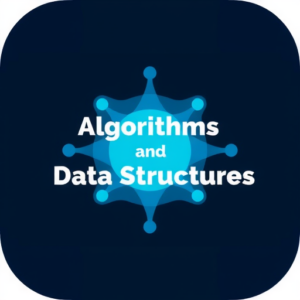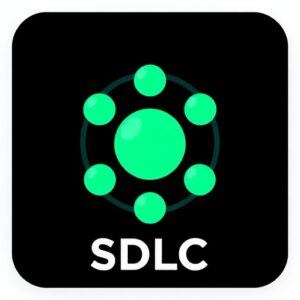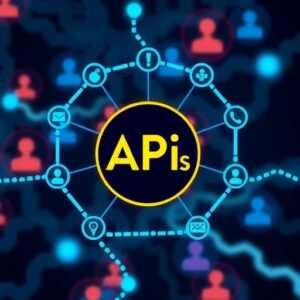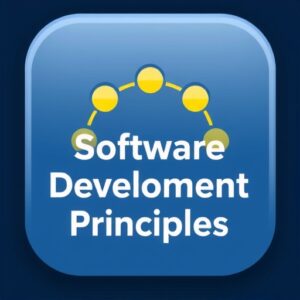In the ever-evolving field of software development, certain foundational concepts are crucial for every developer to master, regardless of the programming languages they use. These concepts form the bedrock of good coding practices and enable developers to create efficient, scalable, and maintainable software. This article explores these key concepts and explains why they are essential for anyone in the development field.
Algorithms are step-by-step instructions designed to solve specific problems or perform tasks. Understanding how to design and analyze algorithms is vital for writing efficient and effective code.
Data structures are ways of organizing and storing data in a computer so that it can be accessed and modified efficiently. Common data structures include arrays, linked lists, stacks, queues, hash tables, and trees. Mastering these will help you handle data effectively and optimize performance in your applications.

Version Control Systems like Git are indispensable tools for managing changes to codebases, especially in collaborative environments. They allow developers to track changes, revert to previous versions, and manage multiple development branches simultaneously.
Platforms like GitHub and GitLab enhance these systems by offering additional features such as issue tracking, code review, and continuous integration.
The Software Development Life Cycle (SDLC) is the process of planning, creating, testing, and deploying software. It encompasses several stages, including requirement analysis, design, implementation, testing, deployment, and maintenance. Understanding each stage of the SDLC helps in delivering high-quality software that meets user needs and is delivered on time.
Agile methodology is a popular SDLC approach that emphasizes iterative development, continuous feedback, and adaptability. Concepts like sprints, backlogs, and user stories are central to Agile and help teams respond quickly to changing requirements.

Object-Oriented Programming (OOP) is a paradigm that organizes software design around data, or objects, rather than functions and logic. The four pillars of OOP—Encapsulation, Inheritance, Polymorphism, and Abstraction—enable developers to create modular, reusable, and scalable code.
Additionally, adhering to SOLID principles (Single Responsibility, Open/Closed, Liskov Substitution, Interface Segregation, and Dependency Inversion) ensures that your code remains robust, maintainable, and scalable.
Database management is a fundamental skill for developers working with data. Whether you’re using a relational database (SQL) or a NoSQL database (like MongoDB), understanding how to design databases, write queries, and manage data is crucial.
Relational databases use structured query language (SQL) to manage and manipulate data, while NoSQL databases provide flexibility in handling unstructured or semi-structured data, making them ideal for large-scale, distributed applications.

Design patterns are tried-and-true solutions to common software design problems. Understanding and applying design patterns like Singleton, Factory, Observer, and Strategy can help you solve problems more effectively and create more maintainable code.
In addition to these, architectural patterns like MVC (Model-View-Controller) or microservices architecture provide frameworks for building scalable and maintainable systems.
Security is paramount in software development. Secure coding practices, such as input validation, authentication, and authorization, help prevent common vulnerabilities like SQL injection, cross-site scripting (XSS), and cross-site request forgery (CSRF).
Understanding encryption techniques is also crucial for protecting data in transit and at rest, ensuring that sensitive information remains secure.

Testing is an integral part of the development process. Unit testing involves testing individual units of code to ensure they function as expected, while integration testing ensures that different modules of a system work together correctly.
Debugging is the process of identifying and fixing bugs or errors in your code. Mastering debugging techniques and tools is essential for maintaining the reliability of your software.
CI/CD pipelines automate the process of testing and deploying code, allowing teams to integrate and deploy changes quickly and safely. Understanding CI/CD tools like Jenkins, CircleCI, and Travis CI is important for modern software development, where rapid iteration is often required.

Software architecture refers to the high-level structure of a software system. Understanding different architectural styles, such as monolithic vs. microservices, and their trade-offs is crucial for designing scalable systems.
Scalability and performance are also key considerations. Designing systems that can scale to handle increasing loads without performance degradation is essential for modern applications.
APIs (Application Programming Interfaces) and web services are essential for enabling communication between different software systems. Understanding how to design, implement, and consume RESTful services and GraphQL is crucial for building interoperable applications.

Cloud computing has become a cornerstone of modern software development. Familiarity with cloud platforms like AWS, Azure, and Google Cloud, as well as understanding how to deploy and manage applications in the cloud, is vital for building scalable and resilient systems.
Containerization using tools like Docker and Kubernetes allows developers to create, deploy, and manage containerized applications, making it easier to develop and scale applications across different environments.
Principles like DRY (Don’t Repeat Yourself), KISS (Keep It Simple, Stupid), and YAGNI (You Aren’t Gonna Need It) help developers write clean, maintainable, and efficient code. These principles encourage simplicity, reduce redundancy, and focus on building only what is necessary.

Understanding networking basics is essential for any developer working on web applications. Knowledge of HTTP/HTTPS protocols, DNS, IP addressing, and ports is necessary for understanding how applications interact over the internet.
Mastering these key concepts equips developers with the knowledge and skills needed to write high-quality software, regardless of the programming language they use. These fundamentals are essential for building a strong foundation in software development, enabling developers to adapt to new languages, frameworks, and technologies as they evolve.
